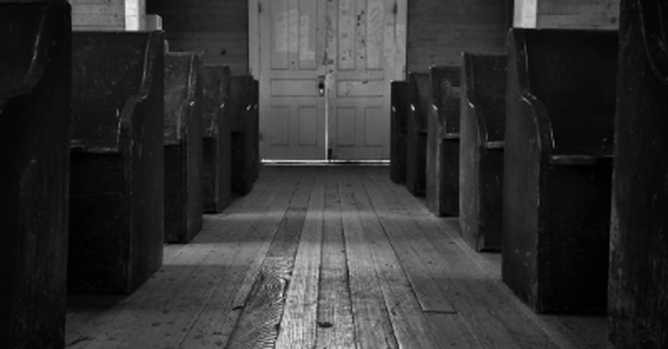|
My blog posts revolve around my interests and vocation as a historian: the intersection of history and contemporary church life, the intersection of history and contemporary politics, serendipitous discoveries in archives or on research trips, publications and research projects, upcoming conferences, and speaking engagements.
I sometimes blog for two other organizations, the Canadian Baptist Historical Society and the Centre for Post-Christendom Studies. The views expressed in these blogs represent the views of the authors, and not necessarily those of any organizations with which they are associated. |
|
Two things happened last week that quickly became related in my mind. First, I finished my course entitled “The World and Writings of John Wesley” by looking at what happened in subsequent generations after the death of John Wesley. The story has some highs – such as widespread nineteenth century revivals or the globalization of Methodism in the twentieth century. It also has some lows – such as the demise of Methodism in the West. And I used some commentary by David Hempton to provide some analysis, especially of the lows. Second, I started reading about the 2021 Canadian census results that portrayed a continuation of the decline of Christianity in Canada. Brian Clarke and Stuart Macdonald have previously noted that decline,[1] and the most recent census simply reinforces that narrative of downward trajectory.[2] What linked the two things in my mind was the reality of a downward spiral of a once vibrant faith. The post-Christendom reality of the Western world has been readily identified by a host of scholars and has been lamented by the faithful who sit in empty pews on Sunday. So what went wrong? What struck me as I was summarizing David Hempton’s comments on the demise of Methodism was how his diagnosis resonated with my own reflection on the census data and the question of “what went wrong.” What I liked about his commentary was the statement that much of the demise of Methodism – and I would argue the church in Canada (and the West) – was self-inflicted. Of course, there were huge cultural factors at play, but the church still had agency and made many wrong choices.
Here are two long quotes from Hempton that I especially appreciated. I leave them with you as you seek to sort out “what went wrong.” And as you seek to figure out the best way forward. “[I]tinerancy was watered down; class meetings lost their dynamism; parents failed to instruct the young in their own tradition; the raw edge of enthusiasm as represented in camp meetings was blunted by a desire for social acceptance; theological education introduced liberal ghosts into the machine; the building of large urban chapels sucked in resources, built up debts, and materialized Methodism’s spiritual culture; the desire to spread scriptural holiness collapsed into civil religion; entire sanctification became a forgotten illusion; a crusading social activism inspired by holy faith disintegrated into a depersonalized social gospel; vibrant liturgical and ritualistic innovations were first routinized and then etherized; the attempt to reform the wider culture ended more often with accommodation, not transformation; the transcendental became incidental; voice became mere sound; and the pursuit of holiness became a quest for respectability. In this scheme Methodism was not eroded by inexorable forces acting from without, but by a thousand shoddy concessions to worldliness emanating from within.”[3] “Far from seeing secularization as an inevitable component of modernization, a kind of religious asphyxiation from breathing the toxic fumes of modernity, the ‘virtual city’ approach lays bare contingencies, mechanism, and instrumentalities. If Christianity has declined in large parts of modern Europe (a proposition difficult to resist), it did not do so because of some irresistible social process or processes, but because of real choices made by real people in real social situations. In particular, the propensity of Europe’s old state churches to align themselves with forces of conservatism and traditionalism (out of perceived self-interest) in a period of fast-moving political, economic, and social change was nothing short of disastrous....The point is that secularization did not simply engulf people; rather, they collaborated with arrangements that facilitated it.”[4] [1] Brian Clarke and Stuart Macdonald, Leaving Christianity: Changing Allegiances in Canada since 1945 (MQUP, 2017). https://www.mqup.ca/leaving-christianity-products-9780773550865.php [2]https://www150.statcan.gc.ca/t1/tbl1/en/tv.action?pid=9810034201 https://notes.waybase.com/reports/Christianity-in-Canada-2011-2021.pdf https://notes.waybase.com/reports/Religious-Changes-in-Canada-2021.pdf https://notes.waybase.com/reports/Composition-of-Christianity-in-Canada-2021.pdf [3] David Hempton, Methodism: Empire of the Spirit (New Haven/London: Yale University Press, 2005), 184. https://yalebooks.yale.edu/book/9780300119763/methodism/ [4] David Hempton, Methodism: Empire of the Spirit (New Haven/London: Yale University Press, 2005), 199.
0 Comments
Leave a Reply. |
Archives
May 2024
|

 RSS Feed
RSS Feed
